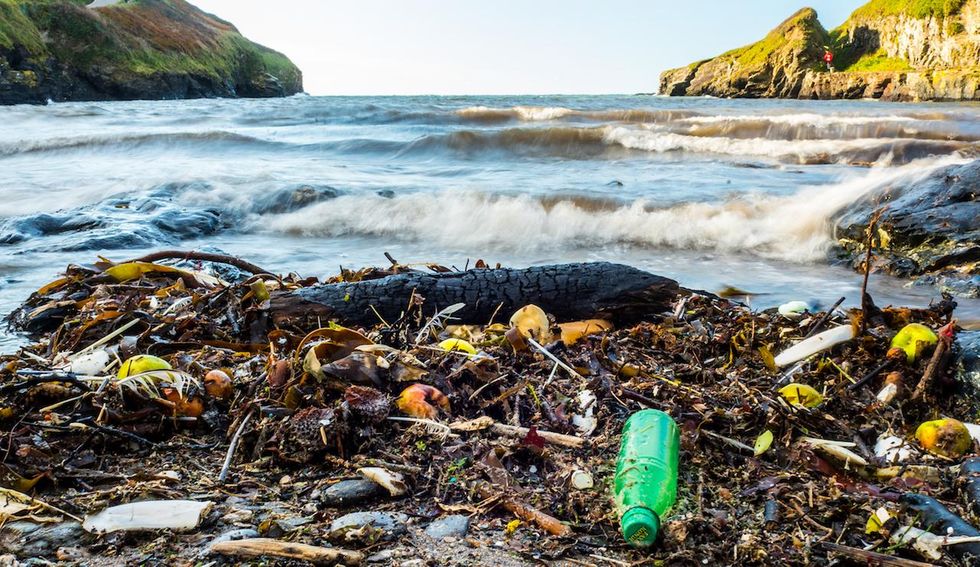
Plastics make up the majority of marine litter on beaches and ocean floors. The European Union and Commission has proposed a ban on single-use plastic products, including drinking straws. (Getty Images)

The European Union and Commission has proposed a ban on single-use plastic products — including drinking straws — that are most often found littering beaches and oceans, according to a news release.
The goal would be to cut marine litter by half by banning or limiting 10 common items, including straws, plates, cutlery, cotton buds, and sticks for balloons. It also estimated the ban would save more than $250 billion in environmental damage costs over the next 12 years.
"Plastic waste is undeniably a big issue and Europeans need to act together to tackle this problem, because plastic waste ends up in our air, our soil, our oceans, and in our food," the European Commission wrote in a release.
The European Union also proposed sustainable replacements for cutlery, plates, straws, and other items.
"You can still organize a pick-nick, drink a cocktail and clean your ears just like before," EU Vice President Frans Timmermans told The Associated Press.
Plastic drink containers won't be allowed on the market if their caps and lids remain attached.
If enacted, EU countries must significantly reduce throw-away beverage and food containers within six years of the law's passage.
By 2025, EU wants member states to collect 90 percent of used plastic bottles to keep them from ending up in the ocean, The Guardian reported.
China became much of the world's dumping ground in the 1980s, which helped fuel the country's manufacturing sector.
Last month, China announced an immediate stop on importing waste from the European Union, United Kingdom, Japan and the U.S., CNBC reported, which likely drove EU's proposal.
"China's ban on importing waste means cutting down their main channel to dispose [that] waste, which has brought them unexpected problems in a short time," said Neil Wang, greater China president for consultancy Frost and Sullivan.
At its peak, China was importing 9 million metric tons of plastic scrap a year, according to Greenpeace.
"Across the world, plastics make up 85% of marine litter," the release said.
The proposal heads to the European Parliament and Council for adoption.
"The only way to stop plastics pouring into our oceans is to turn off the flow at its source: production," Lasse Gustavsson, the European executive director of the environmental group Oceana, told the AP.